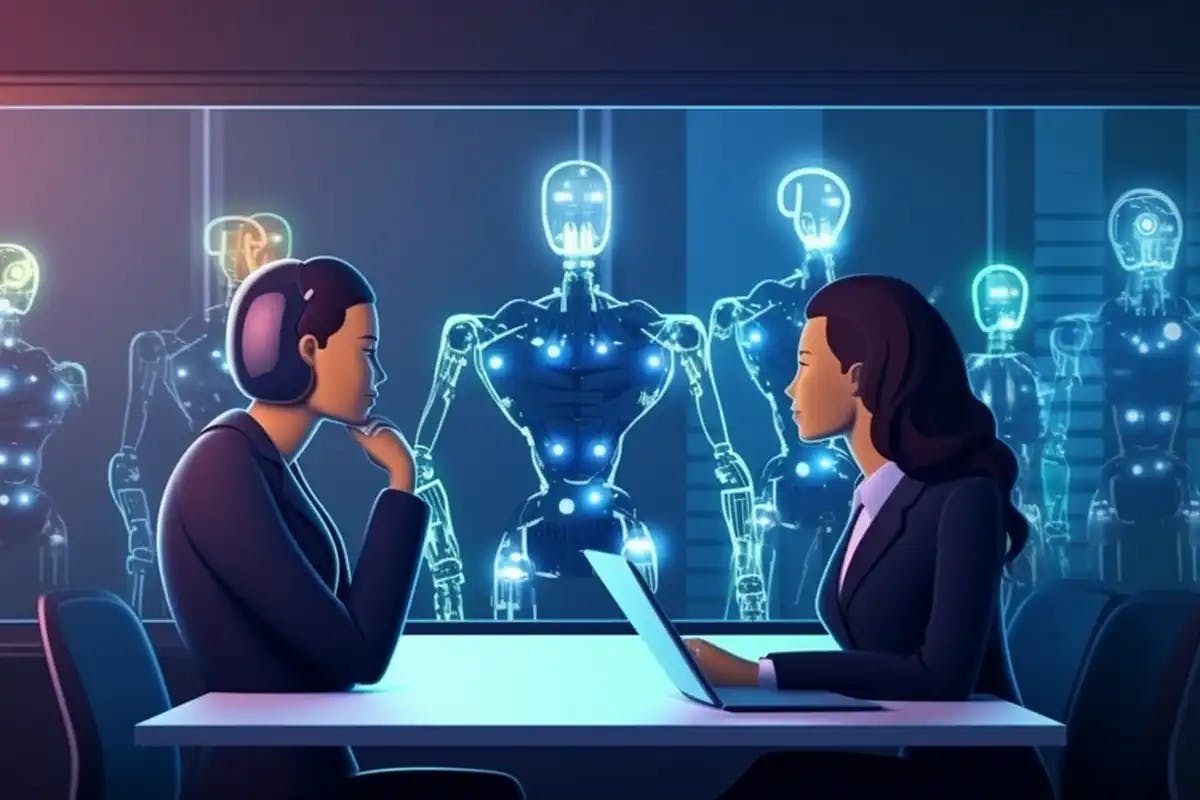In the ever-evolving landscape of human resource management, businesses are increasingly leveraging technology to streamline operations, enhance efficiency, and improve employee engagement. One of the most significant advancements in recent years has been the integration of generative AI into HR solutions, particularly in the realm of performance management.

Generative AI, a subset of artificial intelligence, uses machine learning models to generate content, analyze data, and provide intelligent insights. Its application generative AI in HR solutions is revolutionizing how organizations assess, monitor, and optimize employee performance. In this blog, we will explore the various ways generative AI is transforming performance management and the benefits it offers to businesses and employees alike.
1. Enhancing Performance Evaluations with AI-Powered Insights
Traditional performance evaluations often rely on subjective assessments, which can lead to inconsistencies and biases. Generative AI addresses these issues by analyzing employee performance data objectively. By processing large volumes of data, AI-driven HR tools can identify patterns, trends, and potential areas for improvement.
For example, AI algorithms can assess employee productivity, communication effectiveness, and collaboration skills by analyzing work outputs, feedback, and engagement levels. This leads to more data-driven, unbiased performance evaluations, ensuring fairness and transparency in the review process.
2. Personalized Performance Feedback and Coaching
One of the major advantages of generative AI in HR solutions is its ability to provide personalized feedback. AI-driven performance management tools can generate tailored insights for employees based on their performance metrics, work habits, and professional growth aspirations.
Through AI-powered coaching platforms, employees can receive real-time feedback, actionable recommendations, and training resources that help them improve specific skills. This level of personalization fosters continuous learning and professional development, empowering employees to take charge of their career growth.
3. Automating Goal Setting and Progress Tracking
Setting clear and achievable goals is crucial for employee success. Generative AI simplifies this process by analyzing past performance data and suggesting realistic objectives aligned with both individual aspirations and organizational goals. AI-driven HR platforms can automatically track progress, adjust goals based on performance trends, and provide real-time insights to employees and managers.
For example, AI-powered systems can suggest key performance indicators (KPIs) tailored to an employee's role and past achievements. These systems can also alert managers about potential roadblocks and recommend interventions to ensure employees stay on track.
4. Improving Employee Engagement and Retention
Employee engagement is a critical factor in organizational success. Generative AI tools analyze employee sentiments, feedback, and engagement levels through various channels such as surveys, emails, and chat interactions. By identifying patterns, AI can predict potential disengagement and suggest proactive measures to boost morale and productivity.
For instance, AI can recommend personalized wellness programs, career development opportunities, or work-life balance initiatives based on an employee's engagement trends. This proactive approach helps organizations retain top talent and foster a positive workplace culture.
5. Reducing Bias in Performance Management
Bias in performance evaluations can negatively impact employee morale and hinder diversity and inclusion efforts. Generative AI minimizes biases by standardizing evaluation criteria and ensuring that all employees are assessed based on objective data rather than subjective opinions.
By leveraging natural language processing (NLP), AI can detect biased language in performance reviews and provide suggestions for more neutral, constructive feedback. This promotes fairness and equity in employee assessments, contributing to a more inclusive work environment.
6. Facilitating Continuous Performance Management
Traditional annual performance reviews are gradually being replaced by continuous performance management models, where feedback is provided in real time. Generative AI facilitates this shift by enabling real-time performance monitoring, continuous feedback loops, and on-demand coaching.
HR teams can use AI-powered dashboards to track employee performance throughout the year, allowing for timely interventions and adjustments. This approach ensures that employees are consistently aligned with organizational objectives, reducing the stress associated with infrequent performance evaluations.
7. Enhancing Workforce Planning and Succession Management
Generative AI plays a pivotal role in workforce planning by analyzing workforce trends and predicting future talent needs. AI-driven HR solutions can identify employees with high potential, recommend succession plans, and suggest training programs to prepare employees for leadership roles.
For example, AI can analyze an employee's skill set, career trajectory, and performance history to determine their readiness for a promotion. This helps organizations plan for leadership transitions more effectively and build a strong pipeline of future leaders.
Conclusion
Generative AI is transforming performance management by introducing data-driven insights, automating administrative tasks, and fostering a culture of continuous improvement. By leveraging AI-powered HR solutions, organizations can enhance employee engagement, reduce biases, and create a more transparent and efficient performance evaluation system.
As AI technology continues to evolve, businesses that embrace these advancements will be better equipped to optimize their workforce, drive productivity, and maintain a competitive edge in the market. The future of performance management lies in AI-driven innovation, and organizations that invest in these solutions will reap long-term benefits in workforce efficiency and overall business success.






